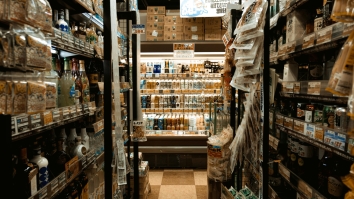
Filipinos turn to mass groceries to buy coffee products
However, a growing youth population could offer opportunities for premium coffee in the longer term.
The pandemic restrictions have been a boost for coffee spending in the Philippines through the mass grocery retail channel, as the closure of coffee shops forced consumers to shift to supermarkets to buy their coffee products, according to a report from Fitch Solutions.
All non-essential businesses were barred from operating between 16 March to 15 May, including restaurants, coffee shops and cafes. Essential business such as mass grocery retailers (MGR) were allowed to remain open.
This has been a positive for coffee spending through the MGR channel. The report noted that consumers shifted their coffee spending away from coffee shops and cafes, into the MGR channel, boosting overall spending levels.
Furthermore, as consumers are unable to get speciality coffees from coffee shops and cafes, many sought similar products at supermarkets, further boosting value spending on coffee.
Demand-side risks, such as consumers avoiding crowded coffee shops and cafes, are expected to continue cutting back consumer spending at these establishments over the second half of 2020 and into the early half of 2021.
This will move down price points in the food and beverage sector. "Within the coffee segment this will play out with the substitution of on-trade coffee with coffee bought through retail channels, putting upward pressure on our coffee spending data," the report added.
Still, spending on coffee is projected to grow by an average of 8.5% a year over the medium term (2020-2024), outperforming other non-alcoholic drinks.
"Coffee is generally considered to be a household staple even amongst the lower income brackets. At present, soluble or instant coffee accounts for about 90% of all the coffee consumed in the Philippines," the report stated.
In addition, the Philippines offers a consumer target market of rising disposable incomes and an expanding proportion of young adults, offering coffee majors a market where growth can be sustainable over the medium term and beyond.
A young adult population is considered to be a trendsetting generation, who are earning incomes and have larger discretionary spending levels. The report noted that they are more likely to spend more on speciality and more premium products.
Further, the country boasts a sizeable population of 4.5 million households with a disposable income of more than $10,000 in 2020, and this group is expected to nearly double over the next five years.
"The Philippines is increasingly going to offer a large group of young, wealthy and urban households. This target market will be key to supporting sustainable growth in spending on coffee products over the next five years," the report stated.
Photo from Unsplash.























 Advertise
Advertise








